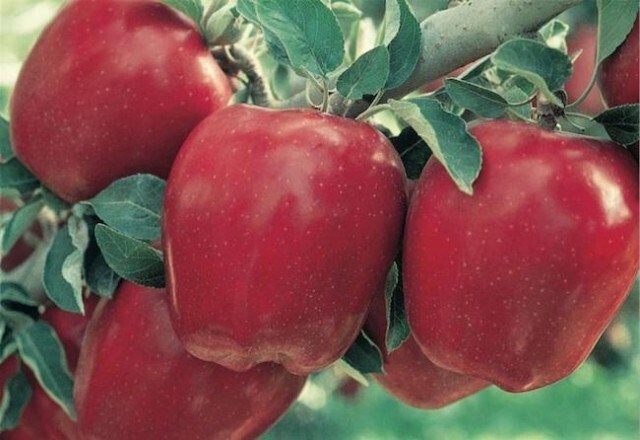
‘The premise, and the reason for this conversation, is that returns are not sustainable.’
The idea of forming a marketing commission for B.C. apples is not going over well with some growers.
Growers across the Okanagan are expressing concerns about the plan, saying it will cost them more money and will not benefit the local industry.
Bill Potash has been growing apples in the South Okanagan for decades and knows the industry inside and out.
“The premise, and the reason for this conversation, is that returns are not sustainable,” Potash said.
Potash is adamant a marketing commission will not help growers as it deals strictly with packing and selling the fruit and will do nothing about the import of apples from Washington State, the Okanagan’s main competitor.
Potash said one of his main concerns is the commission “is not going to do anything” but will add an expense to an already stressed industry.
“Essentially what a marketing commission does is it puts the whole BC apple industry, everything – who packs, who grows, who sells, what you can sell for – everything, in the hands of six people who know nothing about the industry,” Potash said, adding the commission will cost $1.8 million annually which will be paid for by the growers.
Potash said the commission would issue permits and charge levies “for anyone who deals with apples” and that the commission would even have the authority to dictate who can grow what, although he doubts that would ever happen.
Tom Davison is a third-generation apple grower at Vernon’s Davison Orchards and he says the commission will just add another layer of bureaucracy and expense to the industry with no benefit to growers.
“They are putting this forward as if it is going to cure all the issues with the apple industry,” said Davison, adding similar commissions for eggs, chickens, milk and other products control all imports so they can control pricing “but in the apple industry, apples are traded across the border with no tariffs or anything, so it is very much a free market.
“We don’t control pricing and a marketing commission is going to add a whole other layer of bureaucracy and cost to the apple industry at a time when the industry can not absorb more costs.”
Davison said orchardists are already dealing with high costs when it comes to labour, water and other aspects of producing a crop.
“Increasing our costs right now is going to be a disaster for the industry,” Davison said.
Davison said Davison Orchards has moved to a niche market and benefit by dealing with their customers directly, but most of the growers in the valley ship to a packing house so they do not control the connection with the consumer and thus don’t control the prices that they get.
“Many growers are struggling with the return. Those returns are not good through the conventional channels,” Davison said.
South Okanagan grower Sunny Dahliwal said growers are not being provided the full information on the commission and he is waiting for more information on the proposal.
But he said he feels the commission will do little to address the issue of apples being imported from Washington State.
“There’s no way of them helping the apple industry without having any sort of enforcement of imported apples coming in to our country,” said Dahliwal. “Apples are grown all over the world and you can buy them from all over the world and we have our biggest competition right across the border.”
Dahliwal said the commission would also result in more red tape and expenses for growers.



